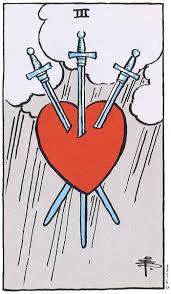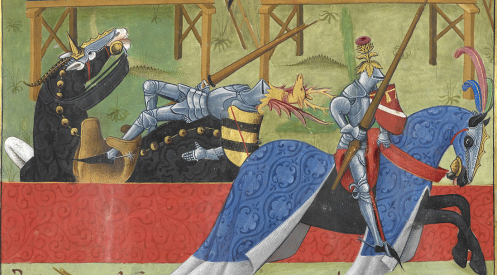(The following is an excerpt from my soon-to-be-released book, Messed-Up! ©2015 Scott Davis, All Rights Reserved to Author)
In the first century of the Common Era (which used to be the Christian era, before a whole lot of other people objected to the fact that it was intolerant of their religion, and everyone agreed to use the word “common” instead, and everyone also agreed to ignore the fact that the era began with the birth of Christ), the Roman Procurator of Judea, Pontius Pilate, rubber-stamped the crucifixion of a wandering preacher who’d been proven guilty of ‘Telling people to love God and be nice to each other’. Pilate hadn’t been happy about it, but the Priests of the Jewish Sanhedrin had been insistent. Jesus, himself, hadn’t been any help, refusing to admit to any crime, while also refusing to oppose his own execution. To Pilate, this seemed yet another version of the whole “Damned if you do, and Damned if you don’t” controversy. Eventually, Pilate washed his hands of the affair (literally), (opting for ‘Damned if you Do’ out of moral cowardice,) and ordered the Crucifixion that the Sanhedrin and their howling mob were howling for.
After Jesus was dead, there were various events which could be interpreted as signs that God was pretty unhappy about something – and a number of Jesus’ followers pointed out that it might NOT be a coincidence that all these events happened right after the Rabbi gave up the ghost.
Joseph of Arimathea, a prominent member of the Sanhedrin, realized that it was the eve of the Passover Sabbath – and Jewish custom forbade leaving dead bodies unburied during such a time. He therefore went to Pilate, mentioned that he had a nice new tomb, and asked (nicely) for permission to take Jesus down from the cross. Contrary to Jewish custom, it was Roman policy to leave executed criminals hanging till they rotted, or the crucifix was needed for the next customer – but Pilate had been really uncomfortable ordering the execution, and Caesar had ordered him to be more tolerant of Jewish customs, so he eventually agreed that Joseph could take the body.
The Sabbath was considered to begin at sundown, which was fast approaching, so Joseph enlisted the assistance of another Sanhedrin member, Nicodemus, and hurriedly pulled Jesus down off the cross, and transported him to the nearby tomb, where they made haste to wrap the body in a fine shroud of linen, and rolled an enormous stone in front of the tomb. After the Holy days were ended, they’d send the women of Jesus’ following to wash the body, and anoint it with spices in preparation for the actual burial.
When the Passover was completed, 3 days after the execution, Jesus’ Mother, his Aunt, and Mary Magdalen, made their way to the tomb, with everything they’d need to prepare the body – except that there was no body! We have four different accounts of this event, and none of them agree on all of the details – but all of them do agree that Jesus wasn’t in his tomb, but the linens he’d been wrapped in were.
Skipping over the fact that, wherever the hell he was, he was naked, the ladies quickly realized that the salient point was that the Master was gone! They hustled back to where the Disciples were laying low, told their story, and everyone pretty much freaked out.
Subsequently there was a rash of Jesus-sightings (miraculously clothed) – including one pretty awkward one for the Disciple Thomas. Thomas had declared that he’d believe in the risen Jesus when he could poke his fingers into the man’s wounds – only to have Jesus actually show up, and insist that Thomas knock himself out! (There is no record that Thomas actually obeyed this command – presumably, the fact that the wounds were, in fact, still open, grossed everyone out enough to not insist.) Eventually, after 40 days of this, Jesus was taken up into heaven, after commanding his disciples to spread the gospel far and wide.
First, however, they had to deal with finding a replacement for Judas Iscariot, the Disciple who had betrayed Jesus, then off’d himself.
The Acts of the Apostles, which is the book of the New Testament where these things are recorded, really doesn’t explain why it was necessary to find another disciple. It’s true that there are certain numerological oddities that crop up, over and over and over in the Bible. It’s also true that the number twelve was one of these, and that Jesus had chosen twelve apostles. A final truth was, with the loss of Judas, they were down to eleven and a new guy was essential to bring them back up to full quota.
Don’t look like that. You may not be a numerologist, but the ancient Israelites damned well were! The numbers 1,3,4,7, 12, and 40 appear over and over again in both the Old and New Testaments, and were considered to some degree ‘holy’. Examples include 1 God … 3 aspects of God (the Trinity) … 4 Living creatures stationed at each of the 4 corners of the throne of God, and they have 4 wings and 4 faces … 6 days to create the Earth, plus 1 to rest, equals 7 days to a week … 7 Churches in the Book of Revelations … 12 tribes of Israel … and, finally, 12 apostles, and “oh, crap, now we only have 11, so we’d better break out the dice and get God to weigh in on this whole thing!”
If the numerological explanation doesn’t do it for you, Acts does quote Peter, considered the head-apostle, as giving a speech regarding an obscure prophesy which could be interpreted to mean they needed a replacement disciple. Everyone talked it out, narrowed down the choices to two guys who’d been with Jesus from his baptism to his crucifixion, and called upon God to choose between them. Then they threw some dice, and declared that God had chosen a fellow by the name of Mathias.
New religions, like new restaurants, begin on very shaky foundations, and are often very fragile. Christianity certainly was: from the beginning, it held the ire of the Jewish Sanhedrin – the High Council of Priests which had connived to have Jesus executed in the first place. Prominent among the members of the Sanhedrin were the Pharisees, a sect of fanatics who had spent three years trying to trip Jesus up. As far as they were concerned, Christians were rogue Jews who blasphemed the faith by claiming the long-awaited Messiah had already come and gone – even worse, they declared that the Pharisees had missed it!
By God, that was going too far!!!
Saul of Tarsus was a well-educated, strictly-raised Pharisee. The new, radical sect of Christianity horrified and enraged him – Christians, after all, were telling everyone that Christ was not just the Messiah of Hebrew prophesy, but the actual Son of God! It was blasphemous, and, like all hyper-fanatical religious types, he couldn’t just stand by and wait for God to judge and punish them – he figured it was his duty (as a hyper-fanatical religious type) to judge them himself (he didn’t actually believe in Jesus, at the time, and had therefore not really paid attention to the Master’s exhortation to “Judge not, lest ye be judged”.) Once he had judged them, he’d see to it that they got dragged before the Sanhedrin, which would take care of punishing them – just as they had done for Jesus.
None of this was his actual job, per se – technically, his profession was “Tent-Maker” – but someone had to make sure these blasphemers got taken care of, and, since no one else seemed ready to do it, he decided he’d step up. He became a professional Christian-Persecutor, and wow, was he ever good at it! Saul was Darth Vader to the Christian’s Rebel Alliance – and, like Darth Vader, he had a life-changing experience, not at the hands of a light-saber wielding kid protecting his sister, but, while minding his own business (for once) on the road to Damascus.
Part way there, he was accosted by the resurrected Christ – who was a little upset that Saul hadn’t cut his Disciples any slack. In the course of the conversation, Saul was blinded, then allowed to continue his way to Damascus. This was not at all an easy thing to do while blind, but he managed it, finding people to lead him by the hand to town where he secured lodgings. On the third day of his blindness, Ananias of Damascus showed up.
Ananias, apparently a fervent new Christian, explained that Jesus had sent him to restore Saul’s sight, and baptize him. His sight restored, Saul, perhaps a little embarrassed at the ruckus he’d been kicking up, changed his name to Paul and decided to make up for being an asshole toward Christians, by being an asshole on behalf of Christians. Before long, he’d started an all-out war with Peter over just whom to preach the gospel to, had written reams of brand new Christian dogma (eventually totaling fourteen of the twenty-seven books of the new testament), and had ticked off both the Jews of Antioch, the Church Fathers in Jerusalem, and, eventually, women, world-wide!
Apart from the road to Damascus, there is NO conclusive evidence that Paul had ever even met Jesus – let alone followed him around for three years soaking up his teachings and parables! Not to mention the fact that this guy had not only been advocating a lynching, but had been prepared to sell the rope for it as well! Peter and the other disciples were, at best, unconvinced of Paul’s authority to decide such sweepingly important issues of the religion they had founded, and which he had always opposed!
Unlike Saul, however, they had actually heard Jesus’ sermon regarding non-judgmentalism, and, regretfully, let him have his say.
Paul decided that you didn’t have to be Jewish to be Christian – an important advance, because Peter, who’d been left in charge by Jesus, had been insisting that new arrivals did have to convert to Judaism first. It might not seem to be a big deal to you, but conversion to Judaism meant becoming circumcised, and the vast majority of men felt that maybe their souls didn’t need salvation if it meant an operation on their privates in the days before anesthetics!
Paul declared it had been revealed to him that the life and death of Jesus had fulfilled all of the old covenants of Judaism – and, since circumcision was the sign of those covenants, newly converted Christians could save both their souls and their foreskins!
Just when everyone was expecting Peter to go postal on Paul, the former announced that he’d had a dream which had instructed him that it was really ok, and Gentiles could become Christians without first becoming Jews. This was little comfort to the ones who’d already done it Peter’s original way, of course.
It is, perhaps, no coincidence that ‘peter’ would eventually become a slang expression for ‘penis’.
(Circumcision, DID,however, offer protection against certain diseases, so the custom of circumcising babies – who were unable to object – continued.)
Once their penises were declared to be safe, people began to be converted by the thousand, all over Asia Minor (modern Lebanon, Syria, and Turkey.) Soon the Disciples made inroads in parts of Greece, the old lands of Carthage in north Africa and southern Spain, all around the city of Massilia, in southern France (modern Marseilles), and a freaking huge contingent around Rome itself.
The Romans weren’t happy about it. For starters, these wackos were preaching ‘niceness’ – something fundamentally at odds with Roman culture! Worse, they were preaching only one God – Rome had a whole Pantheon of Gods, including every Emperor, and these guys were claiming they were all false! The only way the Empire could function, being an amalgam of conquered territories, was to practice tolerance for all religions: religion could, after all, stir up armed resistance faster than anything else known to man! Pretty much the only effective way to govern far off territories was to permit them to keep their beliefs, traditions, and culture. Convince them that they were all a part of the empire. The Christians and Jews, in refusing to accept anyone else’s religion as valid, seemed to the Romans to be the very height of intolerance and bad politics! Apart from which, if the Romans hadn’t allowed the Jews their religious freedom, Christianity could never have gotten started at all! Finally, the ungrateful bastards insisted on gathering together for “Prayer Meetings”, to which only Christians or prospective Christians were invited – and the gods only knew what sort of seditions they were plotting!
By the time of Nero, Christians were being persecuted as a matter of course. When the great fire of Rome broke out, Nero used them as scapegoats, and began rounding them up. He had some dipped in oil, tied to posts and set on fire, to light his horse-races, fed others to Lions in the Coliseum, and is reputed to have ordered the executions of both Peter and Paul – the one by upside-down crucifixion, and the other by beheading. (Paul was given this fairly painless execution because he had been born a Citizen of Rome. There are a variety of historical sources which claim that Nero had NOT, in fact, ordered either man executed – but there’s ample evidence that Nero was not at all a nice person, and probably found the preaching of ‘being nice’ to be anathema, so fuck him!)
This sort of thing continued for a couple of centuries – but persecution has never really discouraged Christianity from spreading. Slowly, Christians began to have more and more influence until at last, Emperor Constantine decided “What the Hell”, and legalized it. At first, this was simply a matter of granting Christianity the same validity under Roman law that any other recognized religion possessed. And, at first, the Christians seemed content: the Empire, and the Emperor, were seen as promoting and enforcing the Pax Deorum (the Peace of God). In return for Christain endorsement, Constantine built cathedrals all over the Roman Empire – the most important, of course, being St. Peter’s Basilica in Rome. This caused Christianity to spread faster than a dirty rumor – even to the farthest fringes of Europe!
When various Christian prelates began arguing over dogma, Constantine summoned the First Council of Nicaea. He invited all 1800 Christian Bishops – but only about 300 actually showed up (mostly from the Eastern Empire: some time before, it had been decided that the Empire was too big to be managed by a single ruler, so it had split into a Western Empire with one ruler, and an Eastern Empire with another. Constantine had fought several civil wars to unify the entire thing again, under his rule – a policy, which, sadly, was sabotaged by his insistence on moving the capital of the empire to his own city in the Eastern Empire: Constantium.) Constantine promised the attendees free transport to and from the council, allowed the Bishops to each bring a couple of priests and three deacons, and put all of these people up at his own expense.
It was the very first religious convention.
At Nicaea, the bishops shouted at each other, swore at each other, called one another heretic, nearly drank the town’s wine-cellars dry, and basically behaved like heathens – important traditions still honored to this day by many Christian denominations during their conventions. Over time, though, the Bishops at Nicaea slowly began to make progress. They selected which books would be contained in the canon of the Bible, which would be considered apocryphal, and which would be considered heretical. While they were at it, they hammered out various doctrinal points, so that, for the first time since Jesus himself, Christians had a formal “creed” or set of teachings, referred to as the ‘Nicene Creed’. They fixed the dates of Holidays, such as Christmas and Easter, decided on the structure of the Church, addressed two off-shoot sects, decided on how heretics and schismatics could be allowed back into the church, and set standards for everything from communion to baptism. In the process, they condemned the existence of the Gnostic Gospels as heresy, confirming the Judgement of an earlier council at Antioch.
As Christianity spread, the Church and its Bishops gathered more and more power – and it is not the way of the powerful to remain content with less than everything.
The Empire became divided into Eastern and Western Empires, again, with separate Emperors, and in both of them, the next few Emperors ping-ponged back and forth between Paganism and Christianity. Finally, Emperor Theodosius briefly reunited the Empires, and declared Christianity the State Religion, removing the shrine of Victory from the Senate, extinguishing the Sacred Flame of the Vestals and evicting them from their Temple, then banning the Olympic Games in Greece.
That’s about when the wheels came off the wagon.
The Senate protested. The Vestals protested. The Greeks protested. The Christians exulted. Theodosius declared Illegal all other cults and ordered their Temples closed – and an orgy of looting and burning began: the Temple of Apollo at Delphi, and the Serapeum in Alexandria were especially prominent casualties – Delphi being home to some awesome statuary (which got burned), and the Serapeum being the last remnant of the Great Library of Alexandria (also burned.)
Meanwhile, Theodosius was busy wrecking his empire’s military might – first by trying (and failing) to fight off the Gothic Tribes attacking the Empire from the North, and then by defeating (just barely) two separate internal rebellions. In the end, the Empires separated again, never to rejoin.
As for the Goths, their chieftain, Alaric, invaded Italy twice, was defeated twice, and decided maybe it’d be a good idea to stay home during the next invasion. The General who defeated him, it began to be whispered, had made a deal with him – a rumor that pissed-off the Western Emperor, Honorius. In retaliation, Honorius ordered the execution of the General and his entire family. Not content with that, Honorius next incited the Roman people to rise up and murder the wives and children of thousands upon thousands of Goths serving in the Roman Army!
The Goths were … upset.
Posted in Adult, anthropology, Betrayal, Christianity, conservative, cults, extremists, Freedom of Religion, funny-book, God, Government, History, humanity, Humor, hypocrisy, Intolerance, Judaism, law, letter of the law, liberal, Life, Men and Women, New Age, Philosophy, Politics, prehistory, Prejudice, Psychiatry, Psychology, Religion, religious, satire, Science, Society, Uncategorized
Tags: Christ, Christianity, conservative, God, History, humor, Jesus, liberal, Paul, Peter, Religion, resurrection






